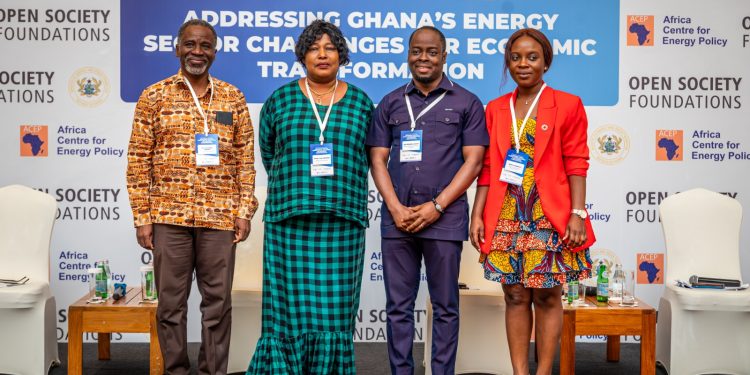Generation Inefficiencies Driving Ghana’s Energy Sector Debt, Says Dr Ishmael Ackah
Advisor to the Minister for Energy and Green Transition, Dr Ishmael Ackah, has underscored the urgent need for transparent and competitive procurement processes, proper planning, and private sector involvement to address Ghana’s mounting power sector challenges.
Speaking at a High-Level Discussion themed “Addressing Ghana’s Energy Sector Challenges for Economic Transformation”, Dr Ackah identified generation as the primary driver of sector inefficiencies, pointing out that about 65% of electricity tariffs and debt burdens emanate from the generation segment of the value chain.
“If we are not paying, we owe. If we are able to fix the generation issues, we can address maybe a lot more of the problems we have,” he remarked.
He attributed the challenges within the generation segment to three critical factors: poor planning, blurred lines of responsibility, and uncompetitive procurement practices.
On planning, he questioned the rationale behind signing Power Purchase Agreements (PPAs) that exceed projected demand and reserve margins, stressing that such decisions often result in financial liabilities that are either transferred to consumers or accumulated as public debt.
“Anything beyond the reserve margin, and we cannot export, becomes a cost. If we don’t pass it on, then it becomes a debt we have to pay,” he warned.
Highlighting the second issue of responsibility, Dr Ackah criticised the current framework where distribution utilities sign PPAs while government bears the debt implications, especially when the agreements are denominated in dollars with escalated annual rates.
“You go to Nigeria, dollar prices are not escalated. You come to Ghana, the power purchase agreement is in dollars, and we have to escalate it every year. It becomes unsustainable,” he noted.
The third challenge, he said, is the absence of cost comparisons in procurement decisions, allowing Independent Power Producers (IPPs) to introduce expensive plants without benchmarking against sub-regional pricing.
Turning to metering and collections, Dr Ackah revealed that over 40% of customers either have no meters or use malfunctioning ones, weakening the revenue recovery capacity of utilities.
“As we speak, out of about 6 million customers of the utilities, more than 40% do not either have meters or their meters are not working. Now, how do we collect money?” he asked.
He acknowledged recent reforms by the Ministry of Energy, including competitive procurement practices and a World Bank-supported project to supply one million meters, as steps in the right direction.
Dr Ackah also advocated for increased private sector participation in electricity distribution to enhance efficiency, urging ECG and NEDCo to improve billing, metering, and collections to close the existing monthly shortfall of about GHS250 million in revenue.
He concluded by urging strict adherence to the Integrated Power Sector Master Plan (IPSM) developed by the Energy Commission, stressing that all generation and procurement decisions must align with the plan’s projections and data.
“Until we address procurement of generation transparently and align with the IPSM, it will be very difficult to have a sustainable pathway in the power sector,” he said.








